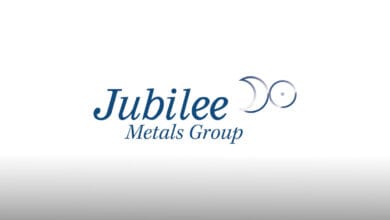Ghana’s position as Africa’s leading gold producer is being undermined by a massive smuggling problem that has drained billions from the nation’s coffers. In a decisive move to combat this crisis, the government has launched its first comprehensive national task force specifically targeting illegal gold trading networks. This initiative represents a significant escalation in Ghana’s approach to securing its precious resource wealth and ensuring the benefits flow to its citizens rather than smuggling networks.
What is Ghana’s new anti-smuggling initiative?
Understanding Ghana’s gold smuggling crisis
Ghana has reportedly lost approximately US$11 billion to gold smuggling activities in recent years, according to Mining.com reporting from July 2025. This staggering figure represents wealth that should have contributed to national development but instead disappeared through illegal channels, with substantial links to international markets, particularly the United Arab Emirates.
The scale of this problem highlights systemic weaknesses in Ghana’s gold supply chain governance that have persisted for decades. Gold produced by both small-scale miners and larger operations has been diverted through sophisticated smuggling networks, bypassing official channels and depriving the government of crucial tax revenue and export earnings.
“The hemorrhaging of Ghana’s mineral wealth through illegal channels has reached crisis proportions,” pointing to the UAE as a primary destination for smuggled Ghanaian gold.
The national anti-smuggling task force structure
On 8th July 2025, President John Dramani Mahama officially launched Ghana’s first national anti-smuggling task force with a specific mandate to combat illegal gold trading. This initiative represents a significant departure from previous approaches that primarily targeted illegal mining operations (galamsey) without addressing the sophisticated trading networks that facilitate smuggling.
The task force integrates both military and police personnel under a unified command structure, creating a more robust enforcement mechanism than previous initiatives. This cross-agency approach allows for coordinated operations spanning mining sites, trading centers, border points, and export facilities.
Unlike earlier efforts focused mainly on environmental protection or mine site enforcement, this comprehensive initiative targets the entire illegal gold supply chain from extraction to export.
Key objectives and enforcement powers
The task force has been granted extensive authority to intercept smuggled gold, investigate illegal trading networks, and enforce compliance with Ghana’s mining regulations. According to the Ghana Gold Board task force, its primary objectives include:
- Disrupting established smuggling routes
- Identifying and prosecuting smuggling kingpins
- Recovering lost tax revenue
- Establishing legitimate channels for gold trading
- Intercepting illegal gold shipments before they leave the country
The task force represents a strategic shift from simply policing mining operations to attacking the financial incentives and trade networks that make smuggling profitable.
How is Ghana incentivising compliance and reporting?
The 10% informant reward system
To encourage public cooperation, President Mahama announced a significant incentive program where informants who provide tips leading to gold seizures will receive 10% of the value of the recovered gold. This reward mechanism aims to leverage community involvement in identifying smuggling operations.
“If you report and gold is seized as a result of your information, you will receive 10% of the value,” President Mahama stated during the July 8th launch event.
This approach recognises that smuggling networks often operate with the knowledge of local communities and that financial incentives can help overcome reluctance to report illegal activities. With all-time high gold prices reaching US$3,500 per ounce in April 2025, even small seizures could result in substantial rewards for informants.
GoldBod: Centralising gold trading operations
A cornerstone of Ghana’s anti-smuggling strategy is GoldBod, a centralised gold trading board established earlier in 2025. This institution has already demonstrated impressive results, facilitating record official exports of 55.7 metric tonnes of gold valued at US$5 billion in just the first five months of 2025.
GoldBod serves multiple critical functions:
- Creating a legitimate, streamlined channel for gold sales
- Ensuring proper documentation and taxation
- Establishing fair pricing for small-scale miners
- Securing foreign exchange returns to Ghana
- Providing data transparency on gold production and trade
President Mahama emphasized the financial impact of this centralisation, stating: “This is money that would not have come back to Ghana because traders would have taken it and kept the foreign exchange outside.”
Traceability and quality assurance measures
Looking forward, Ghana plans to implement a nationwide gold traceability system by 2026, which will enhance accountability throughout the supply chain. This system will create a documented chain of custody from mine to market, making it increasingly difficult to introduce illegal gold into legitimate supply chains.
Additionally, the country is transitioning toward refined gold exports rather than raw materials. This value-addition strategy will be supported by an International Organization for Standardisation (ISO) certified assay laboratory to guarantee quality standards for Ghanaian gold in international markets.
These forward-looking measures aim to create a gold sector that is not only more transparent but also more valuable to the national economy.
What has been the impact of gold smuggling on Ghana’s economy?
Quantifying revenue losses
The US$11 billion in lost revenue documented in recent years represents a devastating economic impact for Ghana. These losses translate to:
- Reduced tax collection for public services
- Diminished foreign exchange earnings
- Lower royalty payments to mining communities
- Decreased investment in infrastructure development
- Limited funds for environmental remediation of mining areas
For perspective, this US$11 billion figure represents more than Ghana’s entire annual government budget, highlighting the enormous fiscal impact of the Ghana and gold smuggling crackdown.
The smuggling operations have effectively diverted national wealth into private hands and offshore accounts, particularly in the UAE, which has emerged as a major destination for illegally traded Ghanaian gold.
Early success indicators
The establishment of GoldBod has already shown promising results, with official gold exports reaching record levels. The 55.7 metric tonnes of gold exported in early 2025, valued at US$5 billion, represents a significant improvement in capturing the true value of Ghana’s gold production.
This early success suggests that with proper oversight and enforcement, Ghana can substantially increase its official gold export revenues and capture value that would otherwise be lost to smuggling networks.
“The initial results from GoldBod demonstrate the enormous potential for revenue recovery when proper gold trading channels are established and enforced,” citing the dramatic increase in official exports.
Comparison with regional approaches
Ghana’s measured reform approach contrasts with more aggressive policies implemented by military-led West African nations, which have included rewriting mining codes, seizing assets, and renegotiating contracts.
As a democracy, Ghana has opted for:
- Enhanced revenue-sharing arrangements
- Higher royalties for mining communities
- Improved transparency mechanisms
- Strengthened regulatory enforcement
- Investment in value-addition infrastructure
This approach positions Ghana as a more stable investment environment while still addressing revenue leakage, potentially creating a model for other democratic nations in the region facing similar challenges.
How will Ghana capture more value from its gold resources?
Value addition through local refinement
By 2026, Ghana aims to transition from exporting raw gold to refined gold products, which command higher prices in international markets. This value-addition strategy is part of a broader effort to ensure that more of the wealth generated by Ghana’s natural resources remains within the country.
The benefits of local refinement include:
- Price premiums for refined gold meeting international standards
- Job creation in higher-skilled sectors
- Technology transfer and skills development
- Reduced dependence on external refineries
- Enhanced national prestige in global gold markets
This transition represents a significant shift from Ghana’s historical role as a provider of raw materials to global markets.
Specialised manufacturing hub development
Beyond refining, Ghana is establishing a specialised manufacturing hub focused on gold products. This initiative aims to create a more diversified gold sector that extends beyond simple extraction and export.
The manufacturing hub could potentially include:
- Jewelry design and production facilities
- Gold bullion and coin minting
- Industrial components manufacturing
- Precious metal recycling operations
- Research and development centers
These value-added activities have the potential to generate significantly more economic benefit than simple ore extraction, creating skilled employment opportunities and establishing Ghana as a regional center for gold expertise.
ISO-certified quality assurance infrastructure
To ensure international market acceptance of Ghanaian refined gold, the government is investing in an assay laboratory certified by the International Organization for Standardisation. This certification will provide quality guarantees that can help Ghanaian gold products command premium prices.
The laboratory will verify:
- Gold purity and fineness
- Absence of contaminants
- Proper alloying for specific applications
- Conformity with international standards
- Chain of custody documentation
This investment in quality infrastructure represents a critical step in Ghana’s transition from a raw material provider to a producer of value-added gold products recognised for their quality and integrity.
What market conditions are driving Ghana’s anti-smuggling push?
Gold price surge and market opportunity
The timing of Ghana’s anti-smuggling initiative coincides with a significant gold market surge. Gold prices have jumped 25% year-to-date in 2025, reaching a peak of US$3,500 per ounce in April.
This price surge creates:
- Increased incentives for smuggling operations
- Greater potential benefits from successful anti-smuggling efforts
- Higher stakes for producing countries
- More attractive economics for value-addition investments
- Stronger case for improved governance mechanisms
With gold at record prices, each recovered ounce represents substantially more value than in previous years, making the economic case for anti-smuggling measures particularly compelling.
Regional resource nationalism trends
Ghana’s efforts align with a broader trend across West Africa, where governments are increasingly focused on capturing more revenue from surging commodity prices.
While military-led nations in the region have adopted more aggressive approaches to resource nationalism, Ghana’s democratic government has pursued more measured reforms focused on:
- Transparency and traceability
- Value addition through refining
- Enhanced regulatory frameworks
- Public-private partnerships
- Community benefit-sharing
This approach aims to increase national benefits while maintaining Ghana’s reputation as a stable investment destination compared to neighbors pursuing more disruptive resource nationalism policies.
International market integration challenges
The significant involvement of international markets, particularly the UAE, in Ghana’s gold smuggling problem highlights the challenges of addressing this issue without international cooperation.
Effective solutions require:
- Diplomatic engagement with destination countries
- International standards for gold sourcing and documentation
- Cooperation between producing and importing nations
- Enhanced customs and border control coordination
- Global financial transparency initiatives
Ghana’s domestic enforcement efforts must be complemented by these international initiatives to close loopholes that facilitate the movement of illegally traded gold across borders.









